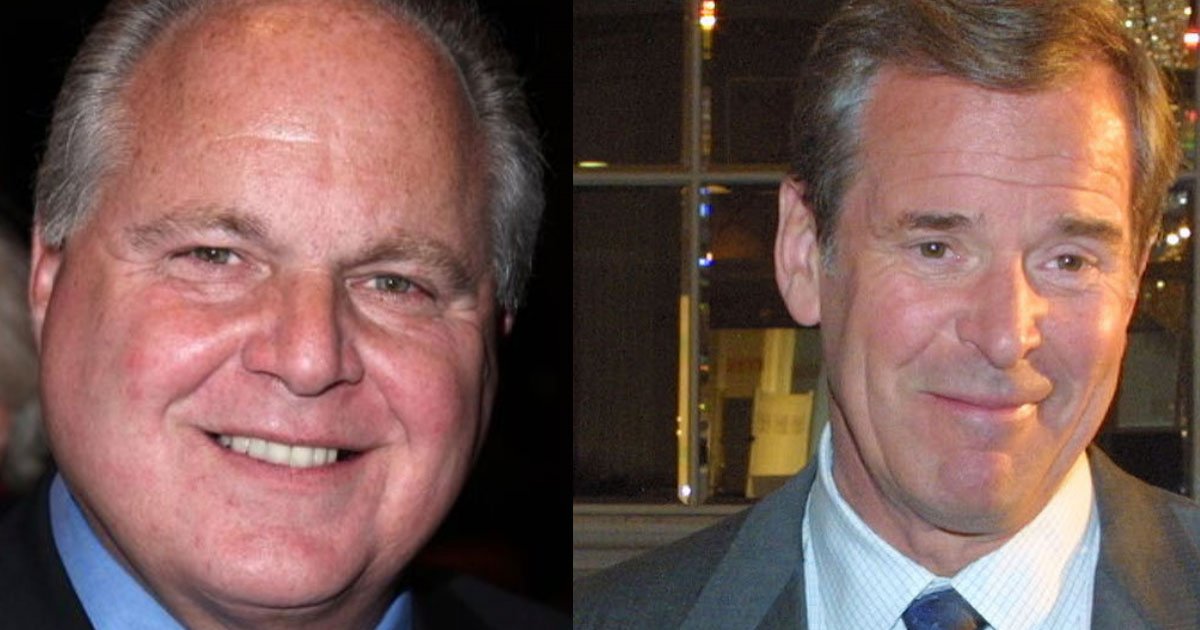When someone very well known gets sick, there is often a documented impact on public health in the country. In the case of talk radio host Rush Limbaugh, who just revealed that he has “advanced” lung cancer the impact may already be starting. Though it’s very much anecdotal, there are some initial signs that mainstream consciousness around lung cancer has been given something of a jolt.
In response to Limbaugh’s diagnosis, we are finding some people who seem to be encouraged to quit smoking.
I need to quit smoking. Just heard that Rush Limbaugh has lung cancer. I’m praying for him.
Read MoreStorm Maverick (@stormmaverick) February 3, 2020 There is a pattern here. Both Jeopardy! host Alex Trebek (who is still fighting bravely) and ABC’s Peter Jennings, were able to raise awareness around cancer after publicly disclosing their diagnoses. Katie Couric lost her husband and sister to cancer in a few years span and now uses her platform to shed light on the disease. Couric’s impact on raising awareness about colon cancer screening has been remarkable.Alex Trebek
In March 2019, long-time “Jeopardy” host Alex Trebek announced that he had been diagnosed with advanced, stage 4 pancreatic cancer. In October he released a PSA announcement covering the symptoms of pancreatic cancer with big results. “We have had such a tremendous response to the PSA that continues to keep going," The World Pancreatic Cancer Coalition told SurvivorNet in a previous conversation. "[Trebek's] decision to become involved in the World Pancreatic Cancer Day global initiative is having a big impact on heightening awareness of the risks and symptoms of this terrible disease."
After Trebek’s PSA, there was a significant increase in traffic to World Pancreatic Cancer Day, "where people can learn more about the disease, the symptoms and risks, how they can take action to raise awareness, as well as find local Coalition members who can provide many services and support for people living with and affected by pancreatic cancer," the Coalition said. When Trebek first announced his cancer, page views for pancreatic cancer increased from 2,000 views to 66,454 views.
Peter Jennings
In 2005 Peter Jennings was diagnosed with lung cancer, publicly sharing his story until he died five months later. In the time since, lung cancer rates have dropped, with credit going to the decrease in people smoking. It’s not possible to attribute the decline in smoking to Jennings’ death, but it did coincide with a tremendous step forward for public health. Take high schoolers for instance. At the time Jennings was diagnosed, the CDC reports that 23 percent of high school students smoked. Just four years later, in 2009, it had dropped to 19.5 percent. In 2019, the rate of high school students smoking had gone all the way down to 5.8 percent.
Related: Rush Limbaugh's Surprise Advanced Lung Cancer Diagnosis If You Smoke, Get Screened
The rate of people trying to quit also increased immediately after with ABC reporting that the national toll-free number, 1-800-QUITNOW, saw an increase from 200,000 callers in 2005 to 500,000 callers in 2009.
Dr. Brendon Stiles on the unknown aspects of vaping.
With the massive boom in electronic cigarette use among young people in the country, there are certainly fears that the progress in smoking cessation might be turned back.
Katie Couric
After losing her husband to colon cancer in 1998, Katie Couric has worked to raise awareness about detection and testing. As part of her efforts, she famously broadcast her March 2000 colonoscopy live on national television. A 2003 study out of the University of Michigan found that in the months after the broadcast, colonoscopy rates went up by over 20 percent across the countryan impact they dubbed the “Katie Couric Effect.”
A year and a half after her onscreen colonoscopy, Couric’s sister, a Virginia state senator, died of pancreatic cancer. In 2008, she co-founded Stand Up to Cancer, an organization that raises money and awareness around cancer.
Learn more about SurvivorNet's rigorous medical review process.


